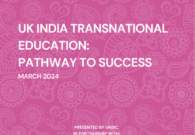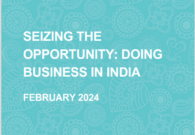Introduction to UKIBC’s Socio-Economic Impact Project
UKIBC are proud to introduce our socio-economic impact campaign, a project to demonstrate how UK companies and universities in India support Indian social and economic development.
In addition to promoting business and investment between the UK and India, it is important that UK business has a positive social impact. And it is… as well as providing support to India’s impressive economic growth, UK companies and higher education institutions are contributing to social development practices in India, from generating clean and renewable energy sources, to supporting education programmes across India.
What is socio-economic development?
Socio-economic development aims to improve the well-being of all members of society. It is achieved through improving both economic activity – such as increasing investment, developing new technology and techniques, and enhancing trade relations – and social outcomes – like nurturing education, improving healthcare, and protecting the environment.
Social and economic development are not mutually exclusive. Education and healthcare improvements can assist economic growth for example, while economic growth is vital to providing resources that can have a wider social impact. Therefore, businesses have a direct impact on the social lives of more than just the clients and stakeholders they directly interact with.
Why is socio-economic development important?
The benefits of socio-economic development can be understood as intrinsically good and instrumentally good. Intrinsically good in the sense that social prosperity and well-being should be the number one priority for all. While, socio-economic development is instrumentally good because it can benefit business by improving demand and consumption of products and services, increase the supply of suitable labour, and ultimately increase profits, as wider portions of society are able to take part in the global economy through work, trade and consumption.
What’s in it for businesses and how can they get involved?
Socio-economic development is not only about philanthropy. Working towards social goals as well as financial targets helps companies to be sustainable, from keeping staff happy, to developing new and continuing existing client relations, and obtaining sustainable sources of financing and resources.
From a company perspective, socio-economic impact can be wide-ranging; there is the internal impact within the company, such as addressing staff’s needs and prioritising well-being, as well as meeting the requirements of all external stakeholders that the company shares a relationship with, from suppliers through to consumers. Additionally, companies can drive social impact through focused initiatives and projects, either directly focused on socio-economic development or that indirectly benefit wider groups through business as usual.
Realising the world’s social goals will require more than just aid and donations. There is estimated to be up to $12 trillion worth of commercial profits to be made in working to ensure social prosperity worldwide.
Furthermore, research shows that pressure is increasing on companies to do more than just turnover a profit. The brightest talent want to work in settings that they feel are having a positive social impact, and brands are increasingly working to align themselves with these views.
Indian context
India has experienced phenomenal economic growth in recent years helping to pull millions out of poverty. As the nation’s per capita income rises, the opportunities for UK companies to trade and invest in India increase also, owed to greater demand for products and services and opportunities for UK-India collaboration.
Social development has benefitted too. India’s HDI for 2017 is 0.640, which puts the country in the medium human development category, specifically 130th on the global rankings and close to the South Asia average. This is a substantial increase from 0.493 in 2000. In the same period, life expectancy rose from 62.6 to 68.8 years. GDP per capita (adjusted for purchasing power parity) rose from $2710 to $6900. And literacy rate has increase from 61 percent of the population to 74 percent.
With a long way yet to go, India provides enormous opportunity for UK companies to contribute to bettering social and economic prosperity. This includes infrastructure, energy, financial services, technology, sanitation, education, and more. The wide range of work and sectors that UKIBC members are invested in means that we at the UKIBC are working towards achieving positive socio-economic impacts throughout India.
In partnership with UNDP
Socio-economic impact is associated with the UN SDGs: 17 goals set by the United Nations to enable all of society to prosper. They are: 1. No Poverty 2. Zero Hunger 3. Good Health and Well-being 4. Quality Education 5. Gender Equality 6. Clean Water and Sanitation 7. Affordable and Clean Energy 8. Decent Work and Economic Growth 9. Industry, Innovation and Infrastructure 10. Reduced Inequality 11. Sustainable Cities and Communities 12. Responsible Consumption and Production 13. Climate Action 14. Life Below Water 15. Life on Land 16. Peace and Justice Strong Institutions 17. Partnerships to achieve the Goals

 By Kealan Finnegan
By Kealan Finnegan 





